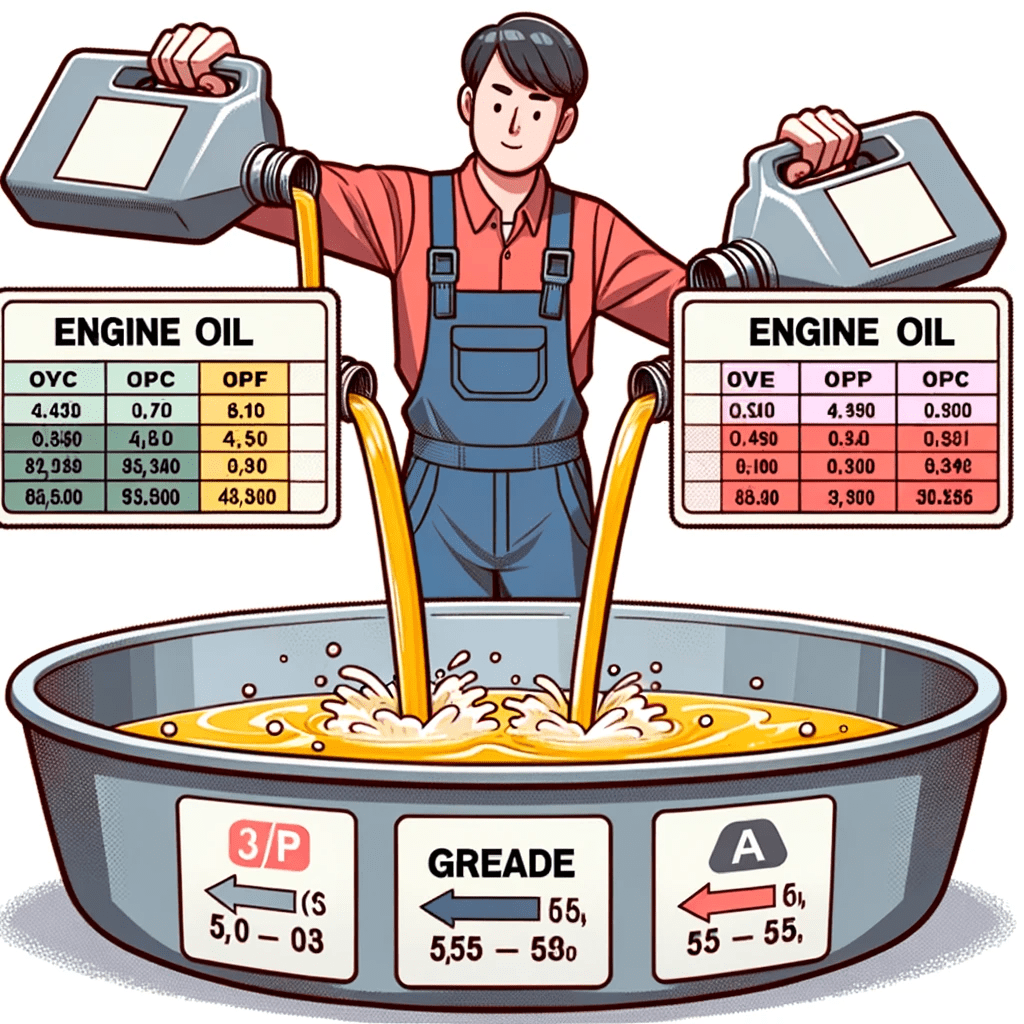The Science Behind Motor Oil Mixing
The molecular dance between different brands of motor oils is a complex one. Motor oils are engineered with a myriad of chemical additives that serve to maintain alkalinity, ensure optimal viscosity, and fend off corrosion and breakdown. The term ‘additive clash’ often surfaces when discussing the interplay of different motor oil formulations. When oils of different brands or types intermingle, the chemical additives within them can react with each other, potentially leading to a decrease in the effectiveness of these additives. Let’s find out if we can mix different engine oils!
| Key Points | Summary |
|---|---|
| Additive Clash in Motor Oils | Different motor oil formulations can react with each other, potentially decreasing the effectiveness of their additives. |
| Risks of Mixing Engine Oils | Combining different motor oil brands can compromise their unique formulations, leading to increased engine wear. |
| Recommendation: Change Oil Every 6 Months | Regular oil changes preserve engine health and the protective qualities of the motor oil. |
| Modern Engine Designs & Oil Technologies | Advances in motor oil technology and modern engine designs may influence the tolerance to oil mixing. |
| Maintaining Motor Oil Integrity | Consistent protection and performance are vital. Follow manufacturer’s recommendations and choose the right oil type. |
| Conclusion: Cautious Approach to Mixing Oils | Ensure optimal engine performance by adhering to guidelines, regular oil changes, and informed decision-making. |
Mix different engine oils: Risks and Recommendations
Venturing into the domain of motor oil mixing comes with its set of risks. One of the predominant concerns is the compromise in protection. Each motor oil brand is a result of meticulous engineering aimed at providing maximum protection and performance. However, when mixed, the unique formulation of each oil can be compromised, leading to increased wear and tear on your engine over time.
The consensus among experts leans more towards avoiding the mixing of different motor oil brands to preserve the integrity of the engine and the motor oil’s protective qualities. However, in unavoidable situations, ensuring that the oils are of similar type and specifications could mitigate potential issues.
The Role of Modern Engine Designs and Oil Technologies

Modern-day engines are marvels of engineering, crafted with superior materials and designed to operate efficiently with the motor oils formulated to match their exigencies. Similarly, advancements in motor oil technology have led to longer-lasting and better-performing oils. These evolutions raise the question: Are newer engines and motor oils more tolerant to mixing?
The exploration of this aspect sheds light on whether the modern-day motorist has a wider berth when it comes to motor oil mixing or if the traditional cautions still hold firm.
Maintaining Motor Oil Integrity in Your Vehicle
The quintessence of motor oil integrity lies in its ability to provide consistent protection and performance. Adhering to the manufacturer’s recommendations, choosing the right type of oil for your vehicle, and ensuring regular oil changes are paramount in maintaining the motor oil’s integrity and, by extension, your vehicle’s engine health.
Mix different engine oils: Conclusion
The discourse around mixing motor oil brands unveils a complex narrative interwoven with chemical engineering, modern-day automotive advancements, and practical considerations. While the act of mixing motor oils may seem benign, the underlying implications suggest a cautious approach.
Adhering to the manufacturer’s guidelines, opting for regular oil changes, and choosing the right type of oil are the cornerstones of ensuring optimal engine performance and longevity. The quest for understanding the mysteries surrounding motor oil mixing underscores the broader narrative of informed decision-making in vehicle maintenance, steering motorists towards a path of enhanced awareness and prudent practices.




